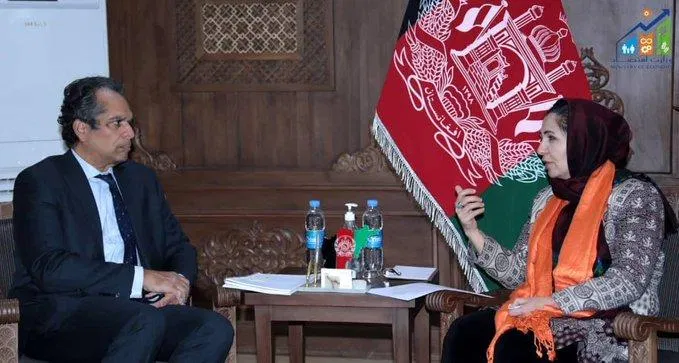Afghanistan needs $1.3bn in humanitarian aid in 2021: UN

UN Acting Assistant-Secretary-General for Humanitarian Affairs Ramesh Rajasingham during his visit to Afghanistan said the war-torn country needed $1.3bn in 2021 to provide assistance to 16 million people.
Rajasingham, who completed a week-long visit to Afghanistan, noted massive increase in humanitarian needs due to COVID-19, conflict and climate change.
“More than ever, we call on the international community to generously support the people of Afghanistan at this critical time,” the top UN official said in a statement.
During his visit, Rajasingham met with First Vice-President AmurallahSaleh, government ministers, and the provincial governor of Kandahar and also met with humanitarian and development agencies, including national and international Non-Governmental Organisation
“While in Dand District, Kandahar, I visited and spoke to newly displaced people who were among the tens of thousands of people in southern Afghanistan forced to flee conflict that just took place in October,” said Rajasingham.
“They told me they were farmers who were able to support themselves and their families, but when they fled violence they left behind their homes, land, livestock and livelihoods,” he added.
Now they are internally displaced and living in tents on the side of a mountain with relief assistance as their only support, he noted.
The UN and humanitarian partners are providing them with assistance such as food, water, medicine and more. Like these families, 300,000 people across the country have been forced to flee conflict this year.
People in Afghanistan have suffered 40 years of war amid a worsening climate crisis and natural disasters.
For most, recovery has never been a realistic option – only survival. Their situation has now been further battered by the impact of the COVID-19 crisis. Unemployment in the formal and informal sectors has risen steeply.
Household income and savings have disappeared and needs have increased dramatically. Almost half of children under-five are now facing acute malnutrition and require treatment to save their lives.
“Everywhere I went people pleaded that what they need most is peace and security. They desperately hope that the Afghanistan Peace Negotiations result in a credible peace that is inclusive of all people in Afghanistan, especially women and girls,” Rajasingham said.
He said humanitarian agencies were stepping up to keep pace with massively increasing needs. “Next year, we aim to reach almost 16 million people with assistance — 5 million more than six months ago — or double the number of people compared to a year ago.”
He linked the drastic increase mainly to the needs created by the COVID-19 crisis and conflict, leading to a growing need for health and food assistance.
“Right now, we only have half the money we need to provide life-saving winter support and require an additional US$71 million. We are prepared to scale up the response to meet needs; humanitarian capacity in Afghanistan is robust. In fact, our access to vulnerable families remained strong despite the impact of COVID-19. “
Aid agencies, carrying much risk, have stayed and delivered — reaching 99 per cent of all districts. Throughout the country, almost 8 million people have been provided with humanitarian aid so far this year.
